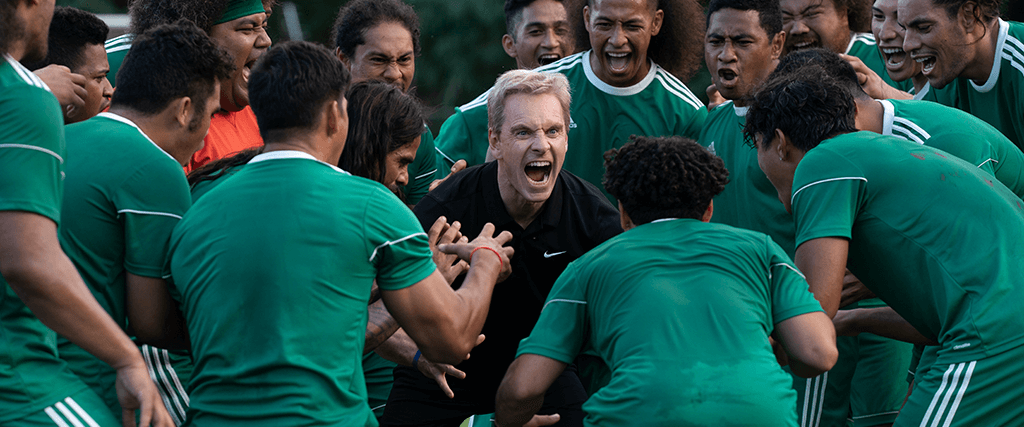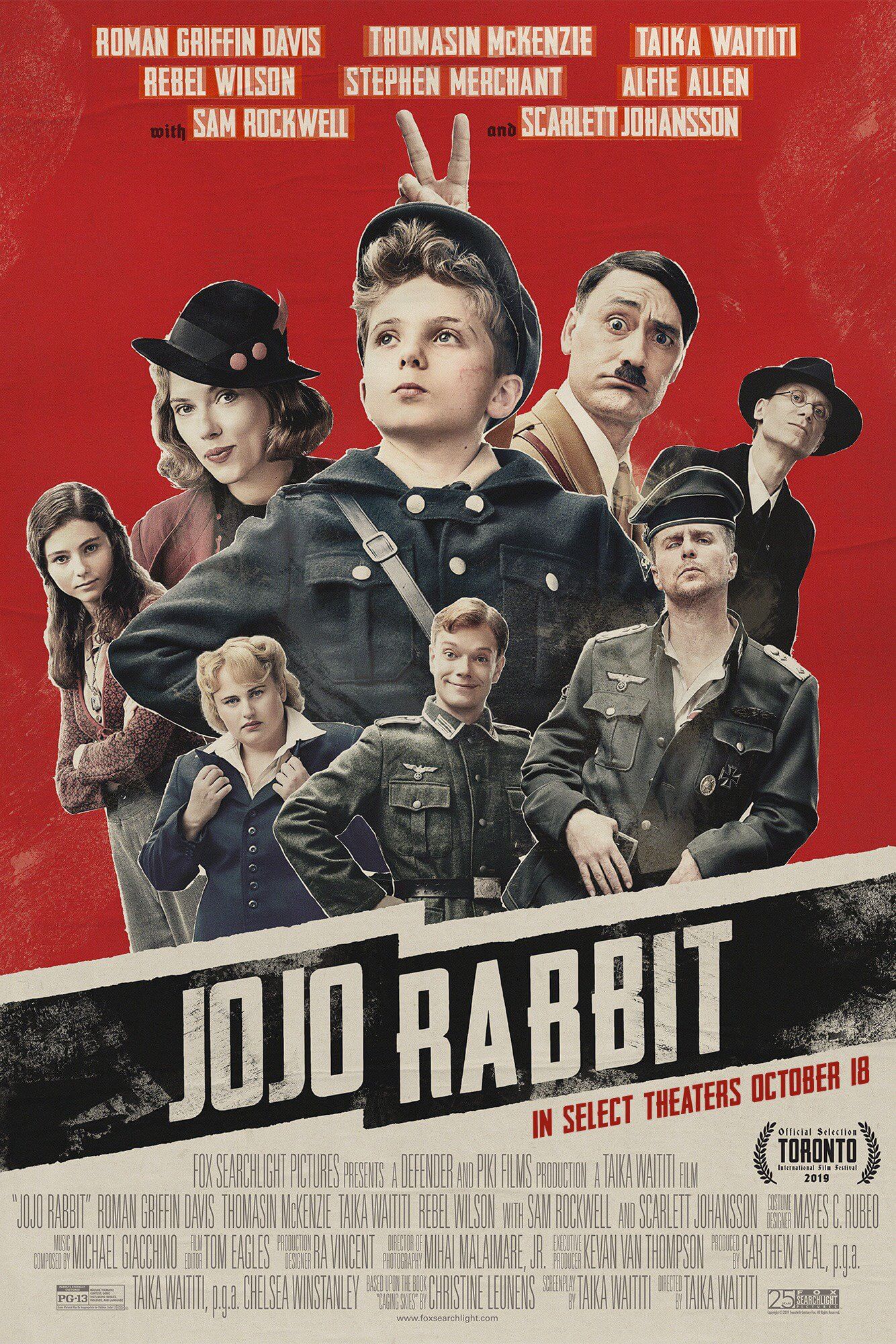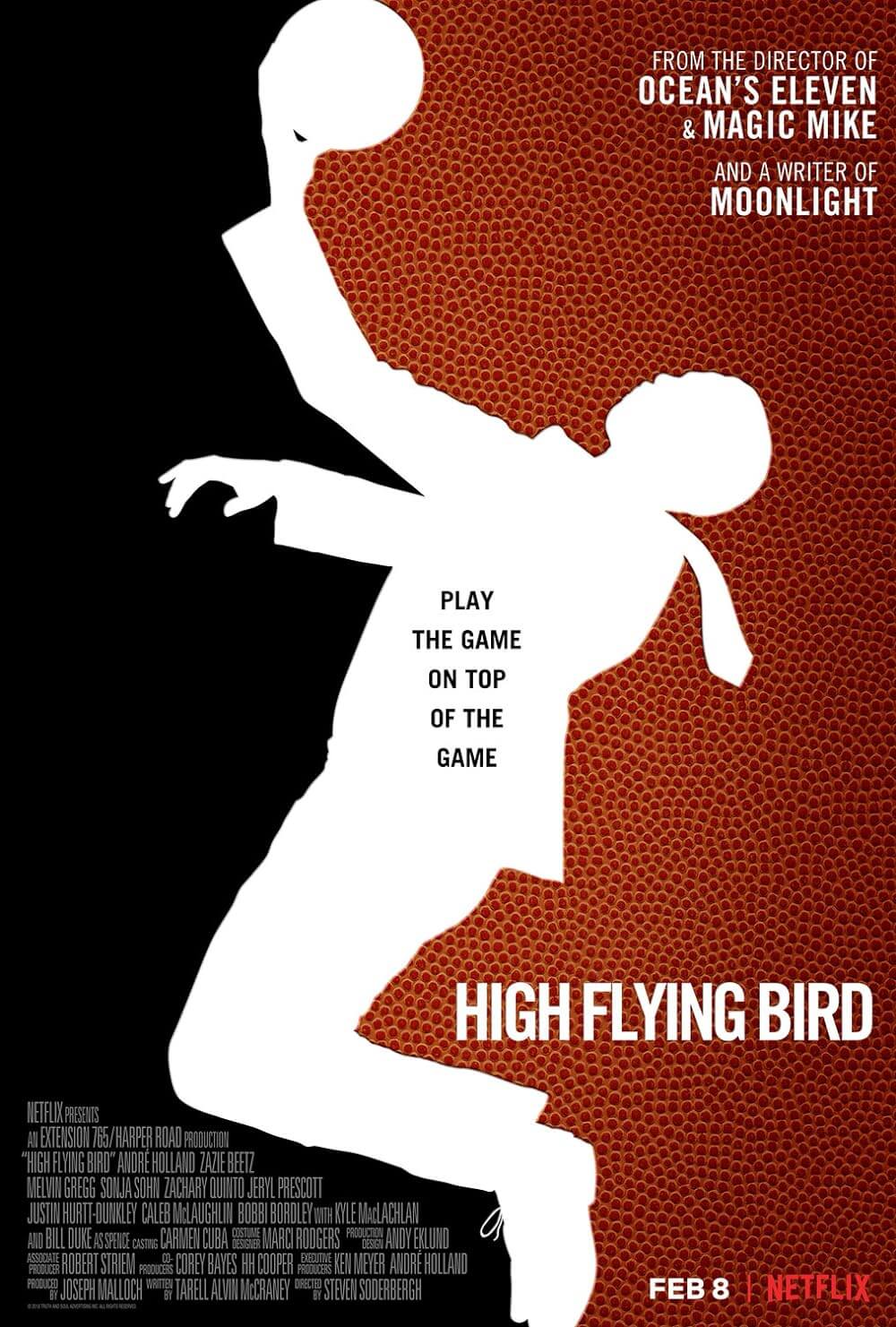
Next Goal Wins
By Brian Eggert |
With Next Goal Wins, director Taika Waititi and his co-writer Iain Morris put forth a dramatic reconsideration of Mike Brett and Steve Jamison’s 2014 documentary of the same name. A textbook underdog story meant to inspire, the film follows the American Samoa soccer team after their notorious World Cup loss, the worst in history, when Australia beat them 31-0 in 2001. A decade later, the FIFA board assigned the volatile Dutch coach Thomas Rongen to the team to get them into shape for the 2011 World Cup qualifying match. What unfolds is a true story that plays like a Hollywood cliché, and it earns no points for its self-awareness as a familiar David and Goliath conflict, complete with plenty of sports movie references from The Karate Kid (1984) to Any Given Sunday (1999). Waititi’s signature idiosyncrasies conjure a few laughs, but the predictable material, done no favors by its translation into a traditional narrative film, never quite connects. Neither a great examination of the sport nor the people playing it, this is Waititi’s least effective movie to date.
Modeled after The Karate Kid—which was little more than Rocky (1976) for the ‘80s—the film is also a fish-out-of-water story. A veritable compendium of standard screen formulas, Next Goal Wins finds the curmudgeonly, alcoholic Rongen (Michael Fassbender) arriving in American Samoa because the FIFA board (Will Arnett, Elisabeth Moss, Rhys Darby) gave him no other choice. Welcomed by team head Tavita (Oscar Kightley), Rongen is tasked with the impossible—he must train the team of misfits to achieve a modest objective: score one goal. Tavita attempts to encourage him along the way, offering generic advice about how to relate to the players, using fish metaphors and hackneyed phrases (“Family is what you make it,” he advises), albeit self-consciously so. Their “deeply religious” spiritualism and general goodwill soon melt Rongen’s icy heart, and he leads them to the qualifying match in just-plain Samoa.
The director’s signature offbeat humor accents the material, lending the American Samoa footballers many of the same characteristics as his Maori characters in Boy (2010) or Hunt for the Wilderpeople (2016). It’s probably more a case of Waititi’s sense of humor than him equating the two cultures, though he draws out their shared cultural heritage as Polynesians, which apparently comes equipped with easygoing nonchalance and an ingrained spirituality. However, Waititi risks portraying his American Samoa characters as a whole; apart from a few individual quirks, their personalities remain negligible, if not entirely nonexistent. They’re seen from Rongen’s perspective, and he doesn’t care to see them as individuals until the third act. The sole exception is a fa’afafine player, Jaiyah (non-binary actor Kaimana, excellent), who initially butts heads with the perpetually negative Rongen but soon helps him find a way of connecting with the perpetually positive team.
Fassbender, who’s not known for his comedic chops, is grossly miscast in Next Goal Wins (this just one week after he gave a pitch-perfect turn in David Fincher’s The Killer). So, too, is Elisabeth Moss as his estranged wife. These usually über-serious performers don’t escape their personas in this material and often feel ungainly juxtaposed with the goofy players, who prove mildly funny at best. Only Waititi’s regular collaborator Rachel House is a scene-stealer. And while Fassbender manages to pull our heartstrings in his predictable, confessional-style locker room speech at halftime, his presence throughout the remainder of the movie often feels incongruous. Not unlike Waititi’s most recent feature, last year’s Thor: Love and Thunder, the director’s personal voice remains at odds with the story. His occasional silliness and intentional nonsequiturs at once add humor but are strangely out of place, and his tendency to deflate heartfelt moments renders the movie inconsequential.
Next Goal Wins leaves you wanting more—more dimension to the American Samoa culture, more detail about Jaiyah’s transition, more time inside Rongen’s head, and more attention paid to the landscape. Shooting in Honolulu, cinematographer Lachlan Milne does little to showcase the island landscape, and, along with editor Nicholas Monsour, does even less to create engaging gameplay sequences. The whole thing feels rather inadequate, with Waititi assuming his peculiarities and eccentricities will smooth over the rough patches—evidenced by his priest character’s introduction and post-credits scenes that fall flat. After the production wrapped in 2020, Waititi set the film aside and completed Thor: Love and Thunder before returning to finalize work on Next Goal Wins, making the result feel like a deprioritized afterthought. That’s how it registers, like a cute, half-hearted trifle tended to between larger projects. But the story and the people from the 2014 doc deserved better, and Waititi’s ever more loosey-goosey style hardly does them justice.

Thank You for Supporting Independent Film Criticism
If the work on DFR has added something meaningful to your love of movies, please consider supporting it.
Here are a few ways to show your support: make a one-time donation, join DFR’s Patreon for access to exclusive writing, or show your support in other ways.
Your contribution helps keep this site running independently. However you choose to support the site, please know that it’s appreciated.
Thank you for reading, and for making this work possible.
Brian Eggert | Critic, Founder
Deep Focus Review







